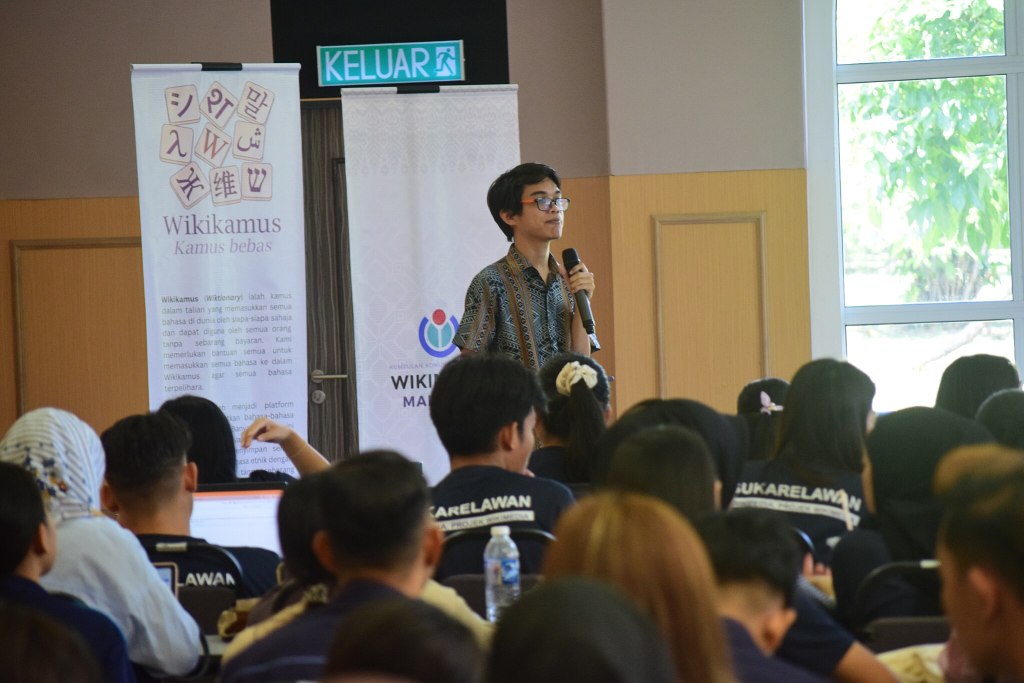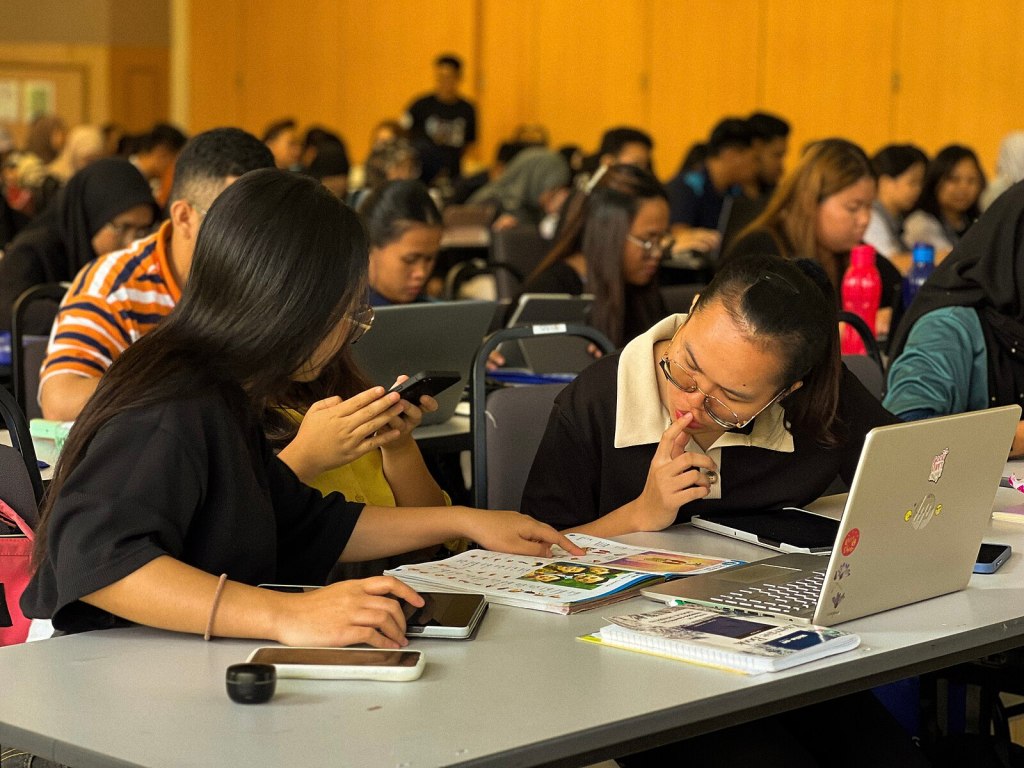On November 18th, 2023 the inaugural “Bengkel Wikikamus” event (Wikikamus is Wiktionary in Malay Language) took place at Universiti Malaysia Sabah. This event marked a significant milestone as the first-ever training and edit-a-thon for the Wiktionary in the Sabah region that successfully drew the participation of 160 enthusiastic youths. The primary purpose of the occasion was to enhance Wiktionary by incorporating vocabulary from the ethnic languages of Sabah, a region where many languages are categorized as Threatened based on the 2023 Expanded Graded Intergenerational Disruption Scale (ethnologue.com). The event itself was funded by the UNESCO Jakarta office, as a result of a collaborative effort involving the Wikimedia Community User Group Malaysia, the Borneo Institute of Indigenous Studies (BorIIS) UMS, and the International Business Club UMS.
“This initiative serves as a pivotal contribution to the UN’s International Decade of Indigenous Languages (IDIL) thus UNESCO Jakarta Office is committed to supporting the endeavors, that are crucial for the promotion and preservation of Malaysia’s ethnic languages, aligning with the goals of the Decade.” shared Ms. Esther Dina Sihombing, Programme Assistant for Communication and Information at UNESCO Jakarta Office.
As the partner organization of this event, the Borneo Institute of Indigenous Studies (BorIIS) UMS plays an important role. BorIIS is a prominent research institute in Malaysia that focuses on preserving cultural heritage including indigenous language and linguistics.
“In advancing within the UN’s International Decade of Indigenous Languages, efforts like Wikikamus/Wiktionary are crucial. They not only safeguard our cultural heritage but also highlight the role of digital media in protecting and enhancing ethnic languages. This project is more than academic, it’s a cultural bridge uniting diverse communities.” shared Dr. Jeannet Stephen, Deputy Director of BorIIS UMS.

Wecklyg, File:Bengkel Wikikamus UMS.jpg CC0 1.0 Universal
As the organizer of the event, Wikimedia Malaysia was astonished by the overwhelming interest and enthusiasm from the participants. The event itself is becoming more special due to one of the trainers is our Wikimedian of the Year for 2023, Taufik Rosman.
“The presence of so many youths, keen on preserving their ethnic languages through open platforms like Wiktionary, is a beacon of hope for these languages in the modern world.” shared Taufik Rosman, The Wikimedian of the Year (2023) from Malaysia.
Throughout the day-long event, the participants, comprising undergraduates from UMS as well as members of Wiki Club and Kent Teachers Training Institute, collectively added a remarkable 2,860 words from 25 ethnic languages to the Malay Language Wiktionary. The event saw a diverse participation, not only from Sabah but also from other regions of Malaysia including Sarawak, Negeri Sembilan, and Kuala Lumpur. Fascinatingly, the event took on a multigenerational dimension as many participants actively engaged with their parents through WhatsApp or Telegram, seeking their guidance as primary language advisors. This involvement of the older generation, albeit through digital means, added a unique and enriching layer to the process of submitting words to Wiktionary, illustrating a beautiful blend of tradition and technology in the preservation of ethnic languages.
M Eqqalson Dikson (Username: Meqqal), an ethnic language teacher-in-training, emerged as the top contributor, adding nearly 200 words in the Kadazandusun language. He believes that the training sparked enthusiasm and motivation for him to preserve the Kadazandusun language as his mother tongue language. Clarence Duncan (Username: Besterx), a UMS student and newcomer to ethnic language preservation, contributed to the Lundayeh language. He sees the program’s potential for learning other ethnic languages through Wiktionary as an open-source platform.

Syafiq.y, File:Wikikamus.ums.jpg 03.jpg CC0 1.0 Universal
This event signifies a significant advance in preserving linguistic diversity, underscored by UNESCO’s role in fostering such initiatives. It stands as evidence of the collaborative power of youth, the efficacy of digital platforms like Wiktionary, and the crucial international support provided by UNESCO. Their combined efforts have been key in driving forward meaningful and sustainable preservation of languages. UNESCO’s support, in particular, has been crucial in amplifying the impact of Wiktionary as a tool for documenting and making ethnic languages accessible, contributing significantly to the broader goals of language preservation on a global scale.

Can you help us translate this article?
In order for this article to reach as many people as possible we would like your help. Can you translate this article to get the message out?
Start translation